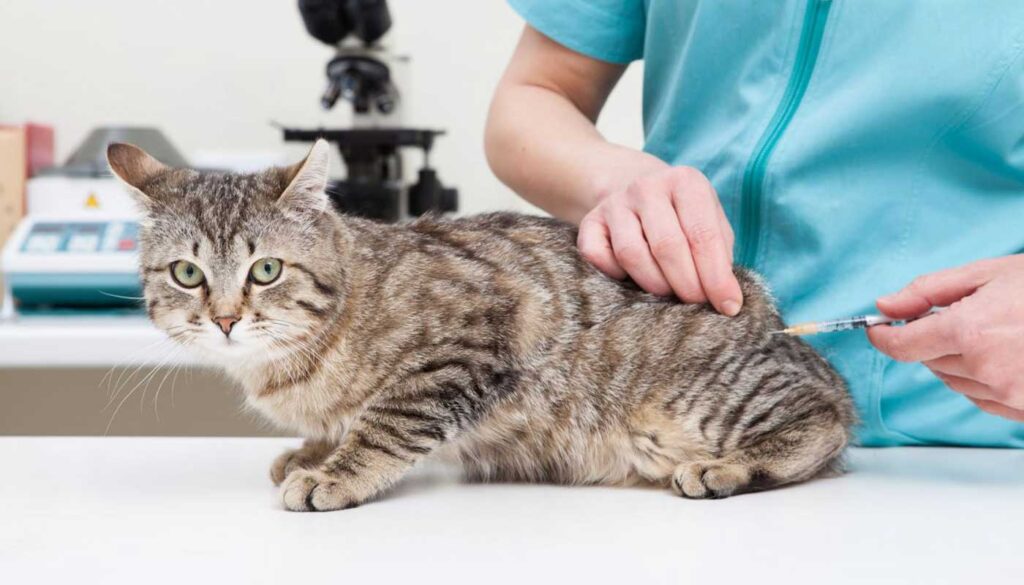Here at the Humane Society of Broward County, we offer vaccination clinics for pets including cats. Our standard cat vaccination package protects cats against four major feline health issues. Keeping your furry friends up-to-date on their shots and treatments is the best way to protect their health. Celebrate Healthy Cat Month by learning more about these essential treatments.

1. Rabies Vaccine
Rabies is a virus that affects mammals including people, cats and dog. It causes an inflammation of the brain and leads to violent behavior, seizures and other neurological problems. Often transmitted by animal bites and scratches, the virus is extremely difficult to treat and is often fatal to infected animals and humans. Wild animals like raccoons and bats can carry rabies and infect pets. Proper vaccinations can stop a rabies infection before it starts, saving the life of your pet.
2. FVRCP Vaccine
We provide the FVRCP vaccine which helps prevent three airborne viruses:
Rhinotracheitis is a virus that causes upper respiratory or pulmonary infections in cats. Symptoms include sneezing, nasal congestion and conjunctivitis. More serious eye conditions can develop if the virus is left untreated. The vaccine dramatically lowers the chances that a cat will contract rhinotracheitis, but vaccinated cats can still be infected. That said, vaccinated cats will recover from the virus more quickly.
Calicivirus is another virus that causes respiratory problems in cats. Fairly mild, it’s akin to the common cold in humans, but it can be extremely contagious. Vaccinations help prevent the spread of the disease. Kittens or cats that live close alongside other felines are particularly susceptible to calicivirus.
Panleukopenia, also known as feline distemper, was once the leading cause of death in cats. Thanks to vaccinations, this threat has been diminished. The virus is found almost everywhere, making it almost impossible for unvaccinated cats to avoid infection. Early symptoms include loss of appetite, high fever, lethargy, vomiting, severe diarrhea, nasal discharge and dehydration.
3. De-Worming Treatment
These intestinal parasites can wreak havoc on a cat’s health because the problem can go undetected for so long. Cats are most likely to come in contact with hookworms, roundworms and tapeworms. All three can cause vomiting and weight loss. And unlike diseases like rhinotracheitis and panleukopenia, cats in some cases can pass hookworms and roundworms on to humans. Proper treatment ensures that your cat and your family both stay healthy.
4. Flea Repellent
Fleas can appear to be a nuisance rather than a serious health problem, but controlling fleas around your cat is essential to preventing bigger problems later on. Certain fleas can cause anemia in kittens and severe skin conditions in some cats. Fleas also can spread intestinal parasites and other diseases that can affect humans. Cat owners can stop the spread of fleas through topical treatments and maintaining a clean environment for their cat.
For more information on the Vaccine Clinic here at the Humane Society of Broward County, click here.
